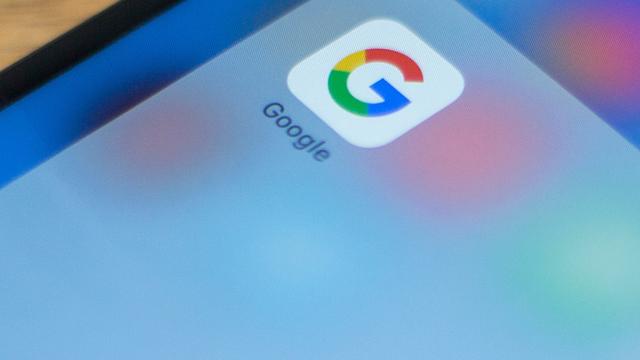On Thursday, Bloomberg reported that the Google was “exploring an alternative” to to the anti-ad-tracking features that Apple will soon begin rolling out in iOS 14.
We’ve written about Apple’s “App Tracking Transparency Framework” (also known as ATT) in the past, but just to briefly recap: Rolled into iOS 14 is a new mandate requiring apps to ask a user if they give permission to be “tracked” across different apps and sites, using pieces of data like their phone’s unique mobile ad ID.
Because most people can generally agree that being tracked by nameless tech companies is creepy AF, it’s also generally agreed among some folks in the adtech community that barely anyone will want to opt into these new ATT prompts. Facebook, in particular, was pretty pissed off at the idea of no longer being able to do all the sneaky shit we’ve come to associate with the brand, and began a months-long tirade against Apple, complete with full-page newspaper ads and a lot of public whining.
Google, meanwhile, has been pretty quiet about ATT up until this point, aside from announcing plans to adopt alternative tracking methods as a way to bypass these new prompts. So when Google says it’s trying to find ways to “limit data collection” across apps in the Android ecosystem, you could say that I’m less than convinced.
It doesn’t help that the Bloomberg article is pretty light on the specifics. The article cited people with knowledge of Google’s internal plans who said that whatever Google ends up making will likely be “less strict” than Apple’s ATT, and won’t require the same pop-up prompt from app developers. Per Bloomberg, this idea is still in its “early stages,” and the company hasn’t decided when — or even if — it will pursue this idea.
OK, so just to recap: Up until this point, tracking and targeting in adtech was kind of a wild west situation. Tech companies in this space regularly found and exploited the loopholes and lax enforcement that came with federal mandates like the GDPR in the EU or the CCPA in the US. What Apple’s trying to do here isn’t necessarily stopping this tracking wholesale, it’s just trying to give people a basic choice: Do they want this tracking to happen, or not? When Google says it’s thinking about a Google-branded privacy-forward product that will be less restrictive for advertisers than Apple’s alternative, that means the same product will strip consumers of that sort of agency by default.
In a way, these efforts smell like everything we’ve come to expect from Google’s privacy push until now. Universally, every step the company seems to take forward — offering to delete your data, for example, or spearheading a war on third-party cookies — comes with the implicit agreement to allow Google to keep its claws hooked into your personal data. Even its so-called Privacy Sandbox initiative is one that promises to keep your data safe from every third party except for Google.
More than anything, these plans that some unnamed Google sources leaked to Bloomberg read like an attempt to play both sides of the field. Plenty of advertisers are ticked at the financial impact Apple’s privacy initiative will have on their field, so this could be Google’s attempt at coaxing them onto Android with the promise of “less restrictions” — whatever that might mean. And as for the consumers who are rightfully creeped out over Google’s ongoing, well, Google-ness, hearing that the company’s at least attempting something similar to ATT might win them back as well.
In other words, Google’s trying to be everyone’s best friend in spite of its reputation. We’ll see how this plays out.
